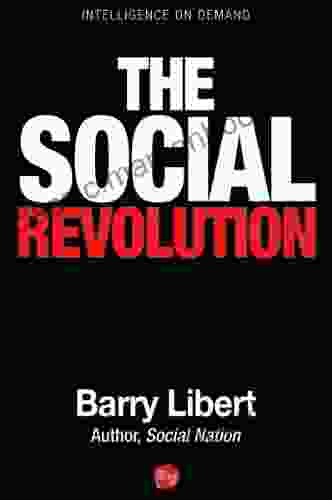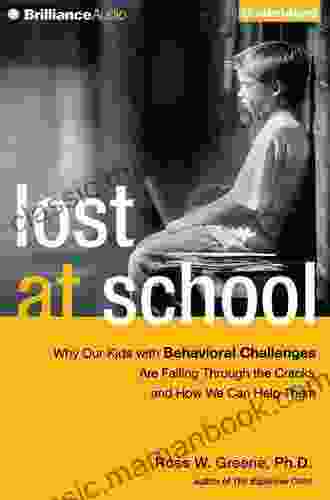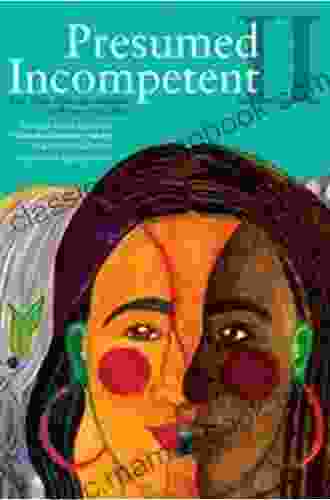Race, Class, Power, and the Resistance of Women in Academia: An Intersectional Approach to Institutional Transformation

Academia has long been a bastion of inequality, with women facing significant barriers to entry, advancement, and success. This inequality is not simply a matter of individual bias or discrimination, but is deeply rooted in the structural foundations of academia itself. In this article, we will explore the intersection of race, class, and power in academia, and examine the resistance strategies of women who have challenged these inequalities.
The Intersectional Nature of Inequality in Academia
Intersectionality is a theoretical framework that recognizes that individuals are not simply members of one marginalized group, but rather are subject to multiple levels of oppression based on their race, class, gender, sexual orientation, and other social identities. In academia, women of color face a unique set of challenges that are distinct from those faced by white women or men of color. For example, women of color are more likely to be hired into lower-paying and less prestigious positions, and are less likely to receive tenure or promotion. They are also more likely to experience sexual harassment and discrimination.
4.9 out of 5
| Language | : | English |
| File size | : | 1483 KB |
| Text-to-Speech | : | Enabled |
| Screen Reader | : | Supported |
| Enhanced typesetting | : | Enabled |
| Word Wise | : | Enabled |
| Print length | : | 550 pages |
Class also plays a significant role in shaping the experiences of women in academia. Women from working-class backgrounds are more likely to face financial barriers to entry and advancement. They may have to work multiple jobs to support themselves and their families, which can make it difficult to complete their studies or participate in research. They may also lack the social and cultural capital that is often necessary to succeed in academia.
Power is another key factor that shapes the experiences of women in academia. Power is not simply a matter of individual authority, but rather a complex and multifaceted phenomenon that operates at both the institutional and societal levels. In academia, power is often concentrated in the hands of white, male faculty members. This concentration of power can create a hostile and unwelcoming environment for women, especially women of color. It can also make it difficult for women to challenge inequalities, as they may fear retaliation or exclusion.
The Resistance of Women in Academia
Despite the many barriers they face, women in academia have a long history of resistance. This resistance has taken many forms, from individual acts of defiance to collective organizing. In the early 20th century, women such as Jane Addams and Florence Kelley challenged the exclusion of women from higher education. They founded women's colleges and universities, and fought for the right of women to receive a college degree. In the 1960s and 1970s, women of color such as bell hooks and Patricia Hill Collins challenged the racism and sexism that was prevalent in academia. They founded organizations such as the Combahee River Collective and the National Women's Studies Association, which provided a space for women of color to share their experiences and develop strategies for resistance.
Today, women in academia continue to resist inequality in a variety of ways. They are organizing to demand equal pay, equal promotion opportunities, and an end to sexual harassment. They are also working to create more inclusive and equitable curricula and departments. And they are mentoring and supporting the next generation of women scholars.
Strategies for Institutional Transformation
The resistance of women in academia is essential for creating a more just and equitable society. However, individual acts of resistance are not enough to bring about lasting change. Institutional transformation is also necessary. This transformation must address the systemic barriers that prevent women from fully participating in academia. It must also create a culture of respect and inclusion where all women feel welcome and valued.
There are a number of strategies that institutions can implement to create a more inclusive and equitable environment for women. These strategies include:
- Diversifying hiring and promotion practices: Institutions need to make a concerted effort to recruit and hire more women, especially women of color. They also need to create more transparent and equitable promotion processes.
- Providing support for women scholars: Institutions need to provide support for women scholars at all stages of their careers. This support can take many forms, such as mentoring, childcare assistance, and professional development opportunities.
- Creating a culture of respect and inclusion: Institutions need to create a culture where all women feel respected and included. This means challenging sexist and racist attitudes and behaviors, and creating a climate of open dialogue and communication.
- Changing curricula and research agendas: Institutions need to change their curricula and research agendas to reflect the experiences and perspectives of women. This means incorporating more women authors and scholars into the curriculum, and supporting research on women's issues.
These are just a few of the strategies that institutions can implement to create a more inclusive and equitable environment for women. By working together, we can create a more just and equitable society for all.
4.9 out of 5
| Language | : | English |
| File size | : | 1483 KB |
| Text-to-Speech | : | Enabled |
| Screen Reader | : | Supported |
| Enhanced typesetting | : | Enabled |
| Word Wise | : | Enabled |
| Print length | : | 550 pages |
Do you want to contribute by writing guest posts on this blog?
Please contact us and send us a resume of previous articles that you have written.
 Top Book
Top Book Novel
Novel Fiction
Fiction Nonfiction
Nonfiction Literature
Literature Paperback
Paperback Hardcover
Hardcover E-book
E-book Audiobook
Audiobook Bestseller
Bestseller Classic
Classic Mystery
Mystery Thriller
Thriller Romance
Romance Fantasy
Fantasy Science Fiction
Science Fiction Biography
Biography Memoir
Memoir Autobiography
Autobiography Poetry
Poetry Drama
Drama Historical Fiction
Historical Fiction Self-help
Self-help Young Adult
Young Adult Childrens Books
Childrens Books Graphic Novel
Graphic Novel Anthology
Anthology Series
Series Encyclopedia
Encyclopedia Reference
Reference Guidebook
Guidebook Textbook
Textbook Workbook
Workbook Journal
Journal Diary
Diary Manuscript
Manuscript Folio
Folio Pulp Fiction
Pulp Fiction Short Stories
Short Stories Fairy Tales
Fairy Tales Fables
Fables Mythology
Mythology Philosophy
Philosophy Religion
Religion Spirituality
Spirituality Essays
Essays Critique
Critique Commentary
Commentary Glossary
Glossary Bibliography
Bibliography Index
Index Table of Contents
Table of Contents Preface
Preface Introduction
Introduction Foreword
Foreword Afterword
Afterword Appendices
Appendices Annotations
Annotations Footnotes
Footnotes Epilogue
Epilogue Prologue
Prologue Sylvia Fraser
Sylvia Fraser Julia B Kingsley
Julia B Kingsley Mary Gibson
Mary Gibson Justin Fenton
Justin Fenton Rachel Harrison
Rachel Harrison Sara Joy Warne
Sara Joy Warne Mala Renganathan
Mala Renganathan Hormel Foods
Hormel Foods Richard Erlanger
Richard Erlanger J Todd Hawkins
J Todd Hawkins David Michelinie
David Michelinie Katherine Sharp Landdeck
Katherine Sharp Landdeck Freida Mcfadden
Freida Mcfadden Damian Dibben
Damian Dibben Christian Jacq
Christian Jacq Bill Bryson
Bill Bryson Simon Beaufort
Simon Beaufort Ellen C Carillo
Ellen C Carillo Lynn Messing
Lynn Messing Marnie Heenan
Marnie Heenan
Light bulbAdvertise smarter! Our strategic ad space ensures maximum exposure. Reserve your spot today!

 Benji PowellCharlie "Pap Pap" Charlie's Legacy: A Legendary Life of Love, Laughter, and...
Benji PowellCharlie "Pap Pap" Charlie's Legacy: A Legendary Life of Love, Laughter, and... Dallas TurnerFollow ·12.9k
Dallas TurnerFollow ·12.9k Miguel de CervantesFollow ·11.8k
Miguel de CervantesFollow ·11.8k Christian CarterFollow ·14.6k
Christian CarterFollow ·14.6k Herbert CoxFollow ·5.1k
Herbert CoxFollow ·5.1k J.R.R. TolkienFollow ·8.1k
J.R.R. TolkienFollow ·8.1k Shane BlairFollow ·16.8k
Shane BlairFollow ·16.8k Albert ReedFollow ·8.8k
Albert ReedFollow ·8.8k Eliot FosterFollow ·13.3k
Eliot FosterFollow ·13.3k

 Bryan Gray
Bryan GrayCello Alternativo: Exploring Contemporary Pizzicato...
: Embracing the Avant-Garde Within...

 Victor Hugo
Victor HugoThe Social Revolution: Barry Libert's Vision for a More...
In a world where...

 Tony Carter
Tony CarterA Comprehensive Guide to Crafting Clear and Effective Job...
A job description is a critical tool...

 Deacon Bell
Deacon BellSelected Poems And Prose Lorenzo Da Ponte Italian Library
Lorenzo Da Ponte, born...

 Francisco Cox
Francisco CoxWhat You Need To Know About Opportunity Cost: A...
Opportunity cost is a fundamental concept...

 Bill Grant
Bill GrantWhy Our Kids With Behavioral Challenges Are Falling...
Every year,...
4.9 out of 5
| Language | : | English |
| File size | : | 1483 KB |
| Text-to-Speech | : | Enabled |
| Screen Reader | : | Supported |
| Enhanced typesetting | : | Enabled |
| Word Wise | : | Enabled |
| Print length | : | 550 pages |










